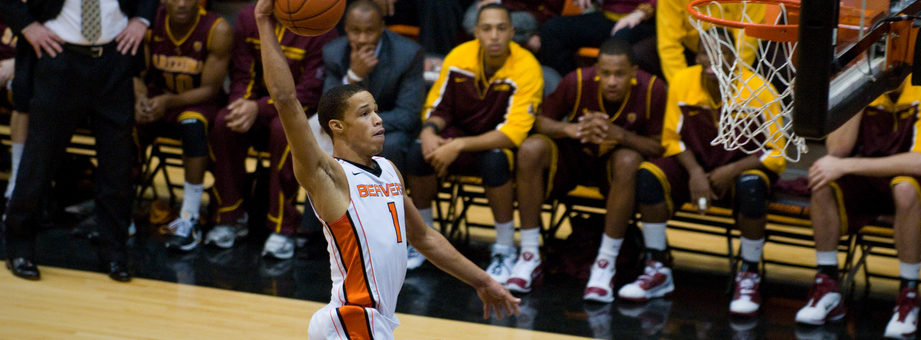

Each year there are thousands of college basketball fans who make an annual pilgrimage to Las Vegas for the NCAA Tournament. Some fans are content to try to win their local office pool, but the real gamblers head to Sin City to throw down action on the individual games as well.
The NCAA tournament now ranks second to only the Super Bowl in terms of betting and seems to be gaining ground in recent years. There is so much action going on from the first tip with four consecutive games going all through the day. The opening two days of the tournament are a gambler’s paradise with 16 games to wager on each day.
Estimates about the total amount of money that exchanges hands during the tournament varies depending on what is all included in the estimate and who you are asking. To look at the full picture, you would need to include bracket contests, office pools, friendly wagers, and sportsbook bets (both physical and offshore/online). Broad estimates like this are unlikely to be very accurate because they make a lot of assumptions about how many people participate in these activities, as well as how much money the average person has in play through all of these different options.
The consensus seems to be that somewhere around $10 billion is put into action as the direct result of the NCAA Tournament. This is an aggressive estimate, but it does appear to be the one most commonly cited come tournament time.
How much money is bet on March Madness? It’s tough to say exactly since so much of it is done illegally through local bookies or through online sportsbooks, but we do know the Vegas casinos have seen over $378 million in college basketball betting during the tournament in recent years. Some guess that number reflects as little as 1%-4% of the total amount of gambling done in the United States.
NCAA tournament brackets pools alone see Americans risk around $3 billion annually, and that doesn’t even count the numerous contests put on by businesses that do not require an entry fee, but will pay out prizes to winners in hopes of getting people to their stores.
What are the different kinds of bets on March Madness? The first is the simple bracket pool. This is where a group of friends, co-workers, family, or strangers each submit a bracket. The entry fee can be as little as a $1 or as high as people are willing to go.
There is normally a point system where the entrant gains points for successfully picking who will advance, with the later rounds being worth more than the early ones. Some pools give more points to upset picks, but in the end whoever has the most points earns a high share of the pooled entry fee money.
Depending on how many people are involved, the pool could pay only the winner or several places. I’d say bracket pools are the most common form of betting March Madness, but for the lowest amount of money per person. A lot of people participate (possibly as high as 10% of the US population), but not for high stakes.
I was recently introduced to NCAA Tournament player pools, and I have to admit, it’s probably my favorite form of gambling when it comes to the big dance.
Player pools are where you pick players from different teams and earn points based on how many points they score throughout the tournament. Set up a snake draft just like you would for fantasy football or other fantasy sports, and pick players, it’s that simple.
The key to winning these player pools it to pick players who will be playing a lot of games in the NCAA Tournament. So, it’s not surprising to see players from No. 1 seed teams go early and often in the draft.
These player pools likely will be paying out the top three places or more depending on the amount of entrants. You can also do a payout to the highest individual scorer of the tournament. That keeps a lot of people alive for a prize at the end if they picked one really good player, but the rest of their team is garbage.
Another way to bet on the NCAA tournament is with the games themselves. Our college basketball handicappers focus on these kinds of bets and will either take the spread, money line, or total.
The point spread is a number of points set by the oddsmakers that the favorite has to win by. If they win by less, a bet on the underdog wins.
The money line varies your risk amount but instead of using a point spread, you are betting on the straight up winner or loser.
Finally, there is the total. Here the bookmakers set a number which represents the total points scored by both teams. You can select a wager based on the final score being under or over that posted total.
A small percentage of people who enter bracket pools will bet on the individual games, but these wagers will tend to be higher than the entry fees to the pools. Plus, there are a lot more games to bet on rather than a one-time entry fee of a bracket.
The final way to wager is to take a team’s odds to win the NCAA tournament. Here you bet a small amount on a team cutting down the nets in the hopes of a big pay day. Even the favorites can earn you four to five times your money back, and if you take a Cinderella team that comes through, you can get up to 20 to 100 times your initial wager!